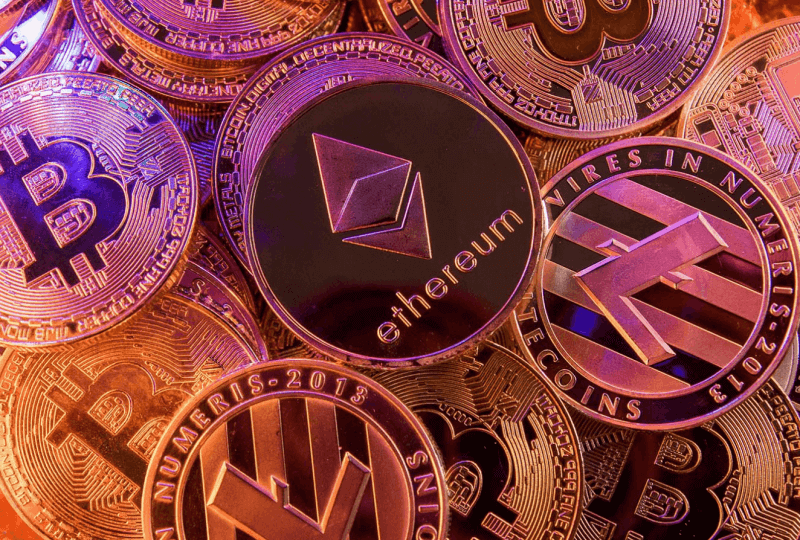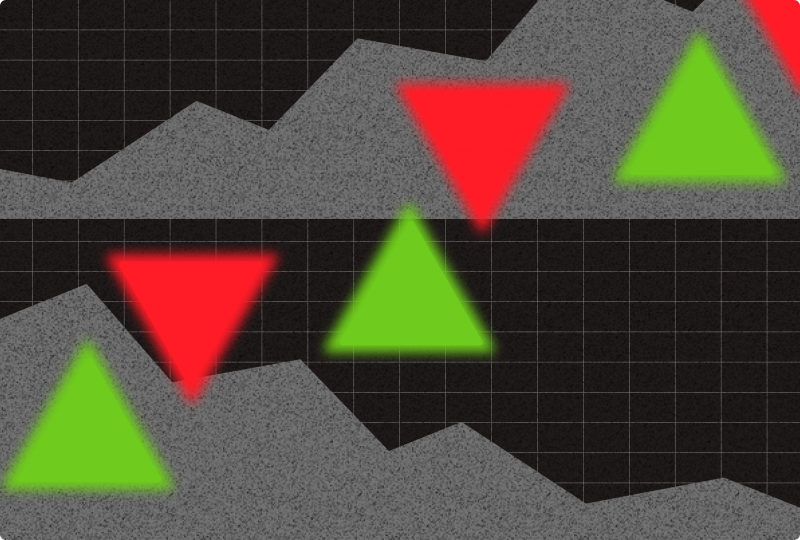7 Of The Best Altcoins To Buy
Nov 30, 2021

The Polkadot blockchain, created by Ethereum co-founder Gavin Wood, debuted in 2020. Polkadot manages the blockchain of the core network, with persistent transactions. Its distinguishing characteristic is its so-called parachains, which are user-created blockchains that may be modified while still profiting from the main chain's security protocols. Users can design various parachains for various purposes without needing extra processing resources from the main chain. Polkadot also enables reliable communication across blockchains. In practice, Polkadot allows investors to immediately swap Bitcoin for Ethereum directly, without resorting to exchanges.
Ethereum (ETH)
Ethereum is the biggest and most popular Bitcoin alternative, yet it was created with a completely different purpose. The decentralized network was the first to establish smart contracts: code that enables blockchain platforms to run decentralized apps, or dApps. According to the data from the website State of the dApps, there are presently 2,889 Ethereum dApps. The network comprises decentralized applications for gaming, gambling, socializing, and even decentralized finance, or DeFi. The Ethereum network is also used by the majority of non-fungible tokens, making Ethereum probably the most practical and usable blockchain in the world.
Solana (SOL)
Compared to Ethereum, Solana is a relative newcomer in the cryptocurrency field. Despite this, Solana is the fourth-most valuable crypto on the market. Solana also supports dApps and NFTs, however, it currently claims to have just 350 or so apps on the web at the moment. Solana's unique blend of proof-of-history (PoH) and proof-of-stake (PoS) transaction verification algorithms is significantly quicker than Ethereum's proof-of-work (PoW) system. Solana also offers lower costs than Ethereum and requires considerably less power than PoW models, making it ecologically friendlier than Bitcoin and Ethereum.
Polkadot (DOT)
The Polkadot blockchain, created by Ethereum co-founder Gavin Wood, debuted in 2020. Polkadot manages the blockchain of the core network, with persistent transactions. Its distinguishing characteristic is its so-called parachains, which are user-created blockchains that may be modified while still profiting from the main chain's security protocols. Users can design various parachains for various purposes without needing extra processing resources from the main chain. Polkadot also enables reliable communication across blockchains. In practice, Polkadot allows investors to immediately swap Bitcoin for Ethereum directly, without resorting to exchanges.
Dogecoin (DOGE)
Dogecoin was founded in 2013 as a Bitcoin parody. The Shiba Inu dog mascot was a big aspect of the joke cryptocurrency's success in 2020. Dogecoin has become a meme sensation on social networks, but the cryptocurrency has also won over some major players on the market. Elon Musk, CEO of Tesla Inc., is a Dogecoin investor who states that he has been working with programmers to make the Dogecoin system more efficient. Dogecoin has been dubbed the "strongest" cryptocurrency for trading by billionaire Mark Cuban. Dogecoin's value has dropped by around 70% from its May high.
Litecoin (LTC)
Litecoin was presented in 2011 by Charlie Lee, an ex-Google engineer who now works for the crypto trading firm Coinbase Global Inc. (COIN). Lee planned Litecoin to be the silver to Bitcoin's gold. The main benefit of Litecoin over Bitcoin is its quicker block creation time, which reduces transaction confirmation time. AMC Entertainment Holdings Inc. (AMC) has recently announced Litecoin and other cryptocurrencies will be accepted as payment by the end of 2021, which will possibly expand Litecoin's presence. Litecoin's price has increased by more than 450% over the last three years, but the cryptocurrency has lost market share due to more dynamic competitors like Bitcoin and Ethereum.
Shiba Inu (SHIB)
Like Dogecoin, Shiba Inu's success is primarily evidenced by its branding, which includes its name and logo. Shiba Inu was founded in August 2020. In July 2021, its creators established the ShibaSwap decentralized exchange, which offers financial services for its users. Outside ShibaSwap, the functionality of Shiba Inu is limited. According to Cryptwerk, the cryptocurrency is accepted as payment at just 371 shops globally. Bitcoin, on the other hand, is accepted by over 7,600 retailers. A petition appeared on Change.org asking the well-known trading app Robinhood Markets Inc. (HOOD) to enable Shiba Inu trade. It has already gathered more than 540,000 signatures.
SafeMoon (SAFEMOON)
SafeMoon debuted in March 2021 and took off quickly, with prices rising significantly within weeks of its release. SafeMoon was created to promote long-term investing while discouraging short-term trading. Sellers pay a 10% commission, with a part of that commission given back to current investors. This strategy helps investors to earn passive income from their investments. Like Dogecoin, SafeMoon has received support from some celebrities, including Barstool Sports founder Dave Portnoy and YouTube star Jake Paul. Investors are hoping that the announced release of SafeMoon V2 would help the cryptocurrency regain momentum following a significant drop from April highs.




